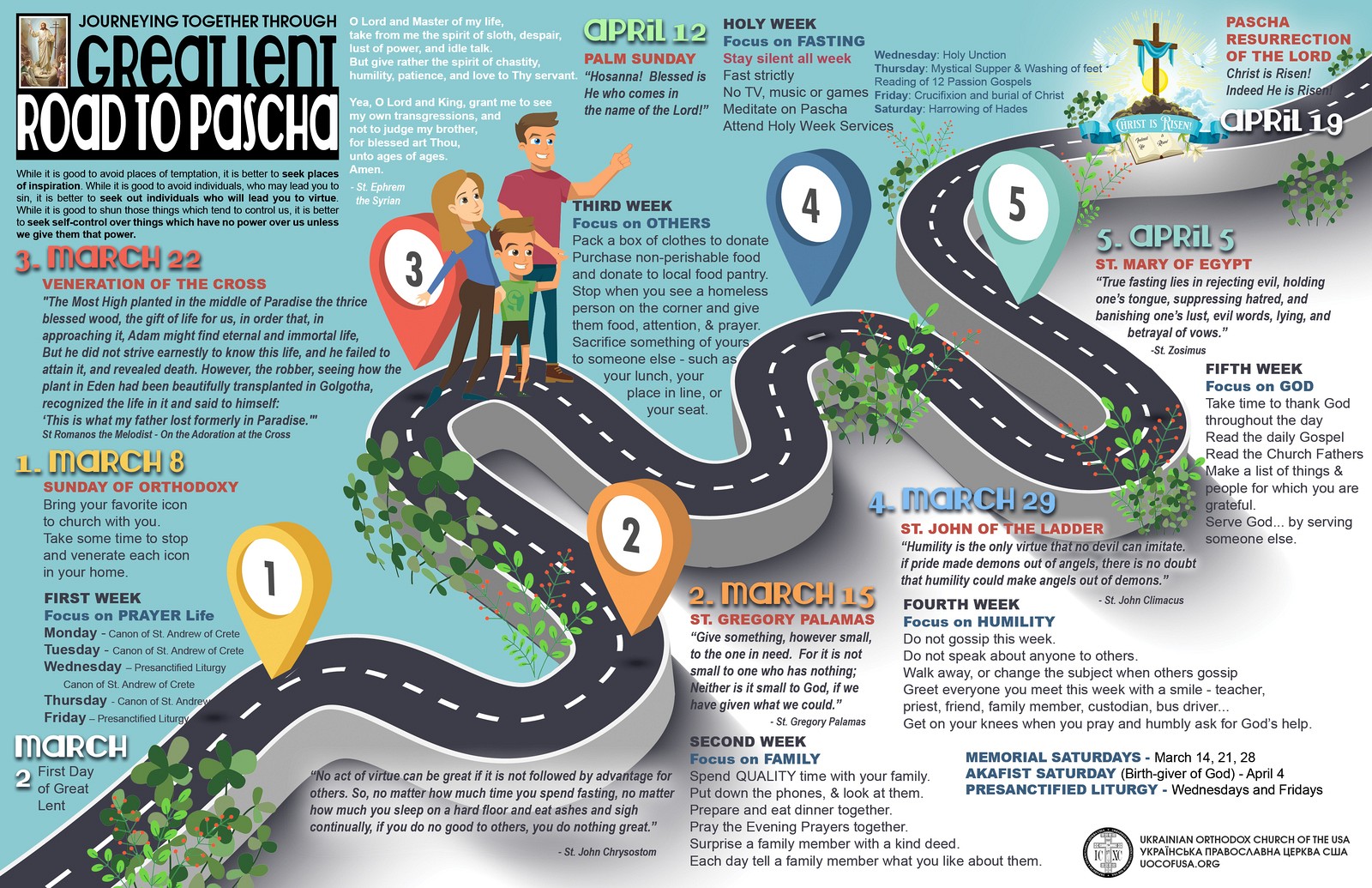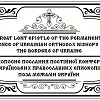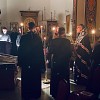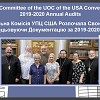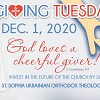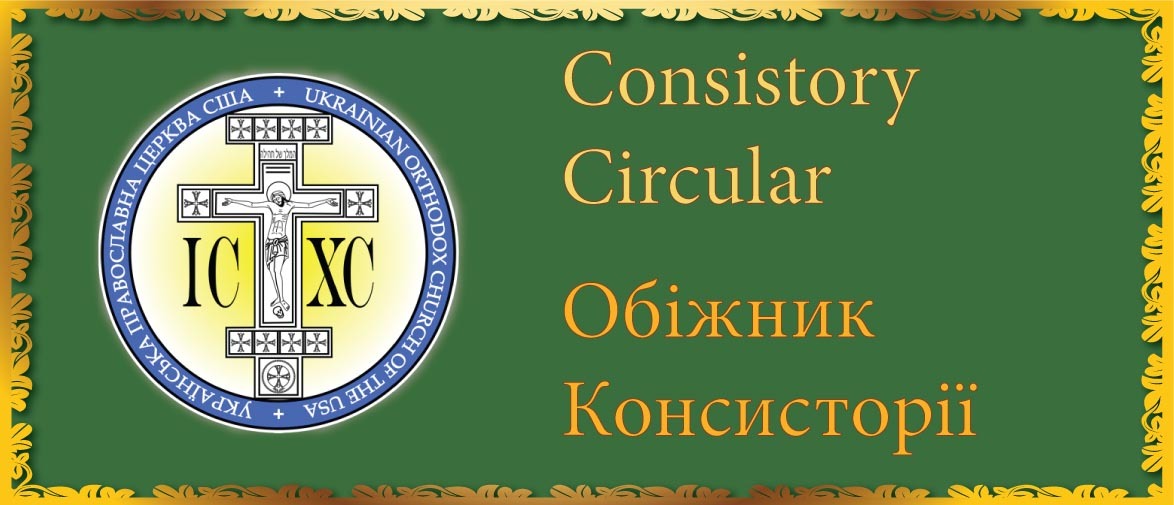Prot. No. 188
CATECHETICAL HOMILY AT THE OPENING OF HOLY AND GREAT LENT
+ BARTHOLOMEW
BY GOD’S MERCY ARCHBISHOP OF CONSTANTINOPLE – NEW ROME AND ECUMENICAL PATRIARCH
TO THE PLENITUDE OF THE CHURCH,
MAY THE GRACE AND PEACE OF OUR LORD AND SAVIOR JESUS CHRIST,
TOGETHER WITH OUR PRAYER, BLESSING AND FORGIVENESS BE WITH YOU ALL
We offer hymns of thanks to the God of love as once again we enter Holy and Great Lent, the arena of ascetic struggle, fasting and abstinence, of vigilance and spiritual awareness, of guarding our senses and prayer, of humility and self-knowledge. We are commencing a new and blessed pilgrimage toward Holy Pascha, which has “opened for us the gates of paradise.” In Church and as Church, as we behold the Risen Lord of glory, we all journey together along the way of deification by grace that leads to the heavenly goods “prepared by God for those who love Him” (1 Cor. 2:9).
In the Church, where “the eternal mystery” of divine Economy is realized, all things have their unwavering theological foundation and pure soteriological reference. The incarnation of God and the deification of man are the pillars of the Orthodox faith. We move toward our eternal destination in the love of Christ. Our God, Who is “always for us,” can never be reduced to some “higher power” enclosed in transcendence and the grandeur of almightiness or its holiness. Instead, He is the pre-eternal Word of God, Who “assumed our form” in order to invite humankind to the communion of His holiness, of the genuine freedom. Man, who from the beginning “has been honored with freedom,” is invited to freely accept this divine gift. In the divine-human mystery of salvation, our synergy also functions as a witness in the world of the blessing that we have experienced—“what do you have that you did not receive?” (1 Cor. 4:7)—through the love for the ‘brother.”
Holy and Great Lent is par excellence a period of experiencing this freedom bestowed by Christ. Fasting and ascesis do not comprise a discipline imposed externally, but a voluntary respect of ecclesiastical practice, obedience to Church Tradition that is not a sterile letter but a living and life-giving presence, a permanent expression of the unity, sanctity, catholicity and apostolicity of the Church. The language of theology and hymnography speaks of “joyful sorrow” and “the spring of fasting.” This is because authentic asceticism is always joyful, springful and bright. It knows no dualism or division; it does not undermine life or the world. “Depressive ascesis” that leads to an “aridity of human nature” has nothing to do with the spirit of Orthodoxy, where the ascetic life and spirituality are nurtured by resurrectional joy. In this sense, fasting and ascesis contain an alternative proposal for life before the promised false paradise of eudemonism and nihilistic pessimism.
Another essential element of Orthodox ascetic spirituality is its social character. The God of our faith is “the most social God,” “a God of relations.” It has rightly been said that the Holy Trinity is “the negation of loneliness.” The individualization of salvation and piety, the transformation of ascesis into an individual achievement, overlook the Trinity-centered essence of the ecclesial event. When we fast for ourselves and according to our whim, then fasting does not express the spirit of the Orthodox tradition. Spirituality is the life-giving presence of the Holy Spirit, Which is always “a spirit of communion.” The genuine Orthodox spiritual life always refers to the ecclesial dimension of our existence and not to some “spiritual self-realization.”
In adhering to the dedication of this year by the Holy Great Church of Christ to “the pastoral renewal and due concern for our youth,” we call upon our Orthodox young men and women to participate in the spiritual struggle of Great Lent in order to experience its anthropological depth and liberating spirit, to understand that Orthodox asceticism is a way of freedom and existential fulfilment in the context of the blessed life in the Church, whose core is to “speak the truth in love.” Our Orthodox youth is called to discover the holistic character of fasting, which is praised in the Triodion as “the commencement of spiritual struggles,” as “food for the soul,” as “mother of all good things and all virtues.” It is not simply an abstinence from certain foods, but a struggle against self-love and self-sufficiency, a sensitivity toward our suffering neighbor, and a tangible response of support. It is a Eucharistic use of creation, existential fulfilment, communion of life and solidarity. Ascesis, fasting, prayer and humility convey the fragrance and light of the Resurrection, from which they receive meaning and direction. As the quintessence of ecclesial life and its eschatological orientation, the Resurrection inseparably links the ascetic life with the Divine Eucharist, the sacrament of foretaste of the ineffable joy of the Kingdom of the Father, and of the Son, and of the Holy Spirit. The fact that the Divine Eucharist is preserved as the center of the life in the Orthodox Church is associated with the fact that the Resurrection is the foundation of our faith and the bright horizon of our ascetic spirituality as well as of our good witness in the world.
With these thoughts, we humbly invoke upon all of you the mercy and blessing of the God of love, so that we may pursue the race of Holy and Great Lent with devout heart, reach the saving Passion of Christ our God and, glorifying His ineffable forbearance, shine brightly for the feast of His splendid Resurrection that leads us from death to endless life.
Holy and Great Lent 2020
+ BARTHOLOMEW of Constantinople
Fervent supplicant for all before God
-------------------
To be read in churches on Cheesefare Sunday, March 1, 2020, immediately after the Holy Gospel.
ОГЛАСИТЕЛЬНЕ СЛОВО ПЕРЕД ПОЧАТКОМ СВЯТОЇ І ВЕЛИКОЇ ЧОТИРИДЕСЯТНИЦІ (2020)
+ ВАРФОЛОМІЙ
МИЛІСТЮ БОЖОЮ АРХІЄПИСКОП КОНСТАНТИНОПОЛЬСЬКИЙ - НОВОГО РИМУ І ВСЕЛЕНСЬКИЙ ПАТРІАРХ
УСІЙ ПОВНОТІ ЦЕРКВИ, БЛАГОДАТЬ І МИР ВІД ГОСПОДА І СПАСА НАШОГО ІСУСА ХРИСТА, А ВІД НАС — МОЛИТВА, БЛАГОСЛОВІННЯ І ПРОЩЕННЯ
Ми звертаємося до Бога любові з піснеспівами подяки, коли ми знову входимо у Святий і Великий піст, на арену подвижницької боротьби, посту та утримання, пильності та духовної усвідомленості, оберігання наших почуттів та молитви, смиренності та самопізнання. Ми розпочинаємо нове і благословенне паломництво до Святої Пасхи, яка «відкрила для нас ворота раю». У Церкві і власне як Церква, коли ми бачимо Воскреслого Господа слави, ми всі разом ідемо шляхом обоження благодаттю, яка веде до небесних благ, «підготовлених Богом для тих, хто любить Його» (1 Кор. 2:9).
У Церкві, де реалізується «вічна таємниця» божественної ікономії, усі речі мають свою непохитну богословську основу та чисте сотеріологічне посилання. Втілення Бога і обожнення людини є опорами православної віри. Ми рухаємось до нашого вічного призначення в любові до Христа. Наш Бог, Який є «завжди для нас», ніколи не може бути зведений до якоїсь «вищої сили», укладеної в трансцендентність і велич всемогутності або її святості. Натомість Він – вічне Слово Боже, яке «прийняло нашу форму», щоб запросити людство до спільності Його святості, справжньої свободи. Людину, яку спочатку «вшановували свободою», запрошують вільно прийняти цей божественний дар. У божественно-людській таємниці спасіння наша синергія також функціонує як свідок у світі благословення, яке ми пережили – «що ти такого маєш, чого б не отримав?» (1 Кор. 4: 7) – через любов до «брата».
Святий і Великий піст – це досконалість періоду переживання цієї свободи, яку дарує Христос. Піст і аскеза не являються дисциплінами, що накладені ззовні, але добровільною повагою церковної практики, покірністю до церковної традиції, яка не є чистим порожнім листом, а живою і життєдайною присутністю, постійним вираженням єдності, святості, соборності та апостольства Церкви. Мова богослов’я та гімнографії говорить про «радісне горе» та «весну посту». Це тому, що справжній аскетизм завжди радісний, весняний і світлий. Він не знає дуалізму чи поділу; він не недооцінює життя чи світ. «Депресивна аскеза», котра призводить до «посушливості людської природи», не має нічого спільного з духом православ’я, де аскетичне життя і духовність плекаються воскресною радістю. У цьому сенсі піст і аскеза містять альтернативну пропозицію життя замість обіцяного помилкового раю евдемонізму та нігілістичного песимізму.
Ще одним важливим елементом православної аскетичної духовності є її соціальний характер. Бог нашої віри є «самим соціальним Богом», «Богом відносин». Правильно сказано, що Свята Трійця – це «заперечення самотності». Індивідуалізація спасіння та благочестя, перетворення аскези на індивідуальне досягнення, оминають увагою троїчно-центричність церковної події. Коли ми постимось тільки для себе і заради посту, то піст не висловлює дух православної традиції. Духовність – це животворна присутність Святого Духа, який завжди є «духом спілкування». Справжнє православне духовне життя завжди стосується церковного виміру нашого існування, а не певної «духовної самореалізації».
Дотримуючись присвячення цього року Святою Великою Христовою Церквою «пастирському оновленню та належній турботі про нашу молодь», ми закликаємо наших православних юнаків взяти участь у духовній боротьбі Великого посту, щоб пережити його антропологічну глибину та визвольний дух, щоб зрозуміти, що православний аскетизм – це спосіб свободи та екзистенційного здійснення в контексті благословенного життя Церкви, суть якого полягає в тому, щоб «говорити правду в любові». Наша православна молодь покликана виявити цілісний характер посту, який в Тріоді оцінюється як «початок духовної боротьби», «їжа для душі», як «матір усіх доброт і всіх чеснот». Це не просто утримання від певної їжі, а боротьба проти самолюбства та самодостатності, чутливості та відчутної реакції підтримки до нашого страждаючого ближнього. Це євхаристійне використання творіння, екзистенційна повнота, спільність життя та солідарність. Аскеза, піст, молитва і смирення передають аромат і світло Воскресіння, від якого вони отримують сенс і спрямованість. Як квінтесенція церковного життя та його есхатологічна спрямованість, Воскресіння нерозривно пов’язує подвижницьке життя з Божественною Євхаристією, таїнством передбачення невимовної радості Царства Отця, і Сина, і Святого Духа. Той факт, що Божественна Євхаристія зберігається як центр життя в Православній Церкві, пов’язаний із тим, що Воскресіння є фундаментом нашої віри та світлим горизонтом нашої подвижницької духовності, а також нашим добрим свідченням у світі.
Цими думками ми смиренно закликаємо на всіх вас милість і благословення Бога любові, щоб ми змогли із побожним серцем провести перебіг Святого і Великого посту, досягти спасительних Страстей Христа, нашого Бога, і прославляючи Його невимовне довготерпіння, світло святкувати Його славне Воскресіння, яке веде нас від смерті до безконечного життя.
Свята і Велика Чотиридесятниця 2020р.
+ Варфоломій Константинопольський,
Палкий молитвенник перед Богом за всіх вас.
|
| |||||||||||||
